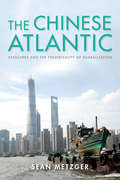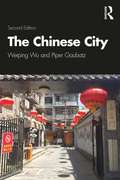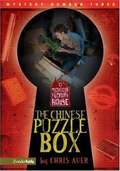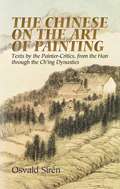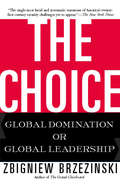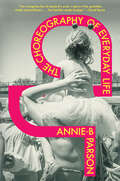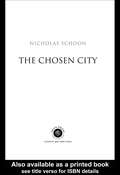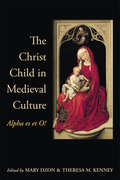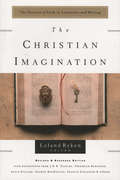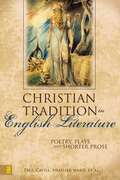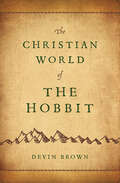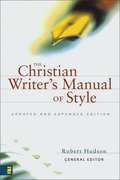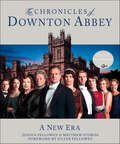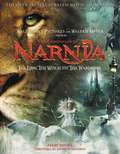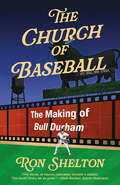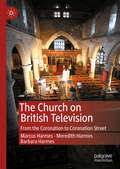- Table View
- List View
The Chinese Atlantic: Seascapes and the Theatricality of Globalization (Framing the Global)
by Sean MetzgerIn The Chinese Atlantic, Sean Metzger charts processes of global circulation across and beyond the Atlantic, exploring how seascapes generate new understandings of Chinese migration, financial networks and artistic production. Moving across film, painting, performance, and installation art, Metzger traces flows of money, culture, and aesthetics to reveal the ways in which routes of commerce stretching back to the Dutch Golden Age have molded and continue to influence the social reproduction of Chineseness. With a particular focus on the Caribbean, Metzger investigates the expressive culture of Chinese migrants and the communities that received these waves of people. He interrogates central issues in the study of similar case studies from South Africa and England to demonstrate how Chinese Atlantic seascapes frame globalization as we experience it today. Frequently focusing on art that interacts directly with the sites in which it is located, Metzger explores how Chinese migrant laborers and entrepreneurs did the same to shape—both physically and culturally—the new spaces in which they found themselves. In this manner, Metzger encourages us to see how artistic imagination and practice interact with migration to produce a new way of framing the global.
The Chinese City (A\world Bank Publication)
by Weiping Wu Piper GaubatzDrawing on years of research experience and keen observations of the triumphs and problems in China’s cities, the authors provide a foundational understanding of China’s urbanization and cities that is grounded in history and geography and challenges readers to consider Chinese urbanization through multiple disciplinary and thematic lenses. This book is anchored in the spatial sciences, including geography, urban studies, urban planning, and environmental studies. It offers a comprehensive survey of the evolving urban landscape, covering such topics as history and patterns of urbanization, spatial and regional context, models of urban form, economic and social-spatial transformation, urbanism and cultural dynamics, housing and land development, environmental and infrastructure issues, poverty and inequality, and challenges of urban governance. The book highlights both parallels and substantive differences between China and comparable cities and countries elsewhere, given that some urban conditions around the world converge and point to shared catalysts (e.g. internal migration) and globally linked processes (e.g. climate change). It explores the consequences of the demographic, economic, social, and environmental transitions on cities and urban dwellers. Illustrated case studies in each chapter ground the discussion and introduce readers to the diversity of cities and urban life in China. Most chapters also can be used as stand-alone course materials, with suggested references for further reading. Intended for a wide audience in higher education and beyond, this book will be useful to readers interested in Chinese Studies, East Asian Studies, Urban Studies, Urban Geography, or Urban Planning.
The Chinese Puzzle Box (Mystery of Eckert House #3)
by Chris AuerStill haunted by recent events, twelve-year-old Dan Pruitt no longer trusts his instincts. Then he and his friends discover a riddle hidden in an ancient Chinese puzzle box, and Dan realizes his instincts were right all along. Someone is trying to get them out of Eckert House, but why? Whoever it is will stop at nothing to get rid of them one way or another.
The Chinese on the Art of Painting: Texts by the Painter-Critics, from the Han through the Ch'ing Dynasties (Dover Fine Art, History Of Art Series)
by Osvald SirénBecause so many Chinese artworks have been ravaged by time, the only way to really understand their history and significance is to turn to writings by the painters themselves or by contemporary critics. That is what Osvald Sirén has done in this classic book, with eye-opening results. One of the first Western studies to systematically cover the more than two thousand years of Chinese art, this book by a modern expert considers a wide range of topics, including the relationship between religion and art and the different aesthetic philosophies prevalent in different periods. The book covers art works from the Han (third century B.C.) to the T’ang dynasties; the Sung period; aspects of Ch’an Buddhism and its relation to painting; the Yüan period; historical theories, methods of study, and aesthetic principles of the Ming dynasty; and individual departures and reassertion of traditional principles during the Ch’ing period. Readable and intriguing, this volume is a valuable reference for art lovers and historians.
The Choice: Global Domination or Global Leadership
by Zbigniew BrzezinskiAmerican power and a pervasive globalization are the central realities of today's world, and the source of its thorniest dilemmas. Yet while America's unprecedented might should be the source of global security, Americans today feel less secure than ever. Globalization promotes American dominance even as it breeds anti-American resentment. In The Choice, former National Security Advisor Zbigniew Brzezinski addresses the historic choice facing America at this very moment: Will it strive to dominate the world, or lead it? Reminding us that American dominance should not be confused with omnipotence, Brzezinski shows how America's well-being and the world's are entwined, and that America must find a way to be both guarantor of global security and promoter of the global common good. "When it comes to what might be called the 'philosophy' of foreign policy-the relationship of U. S. power and policy to broader historical and cultural trends-no statesman of Brzezinski's generation is in his league. . . . A tour d'horizon of U. S. foreign policy [that] discusses the inevitable contradictions and tensions that enmesh a democratic society that is also a global hegemon, criticizes the Bush administration, and articulates his own vision of the way forward-all in a little over 200 pages. Even those who do not accept Brzezinski's critique of the Bush administration will admire the sagacity of his views; for Democrats attempting to assemble a serious and thoughtful alternative to Bush's foreign policy, The Choice is indispensable. "-Walter Russell Mead, Foreign Affairs
The Choreography of Everyday Life
by Annie-B ParsonA renowned choreographer explores the dance of everyday life and reveals that art-making is as natural as walking down the street In this sparkling, innovative, fully-illustrated work, world-renowned choreographer Annie-B Parson translates the components of dance—time, proximity, space, motion and tone—into text. As we follow Parson through her days—at home, reading, and on her walks down the street—and in and out of conversations on everything from Homer&’s Odyssey to feminist art to social protest, she helps us see how everyday movement creates the wider world. Dance, it turns out, is everything and everywhere.With the insight and verve of a soloist, Parson shows us how art-making is a part of our everyday lives and our political life as we move, together and apart, through space.
The Chosen City
by Nicholas SchoonThere is endless talk about the need for an urban renaissance; can it happen in the real world? In this broad, challenging and highly engaging book, Nicholas Schoon argues that the foremost priority for regeneration is to make neighbourhoods and cities places where people with choices choose to live.The author surveys the last two centuries of metropolitan growth and decay, analyzes the successes and failures of recent changes in urban policy and proposes a wide range of radical measures to make the renaissance a reality. Comprehensively researched, The Chosen City is a wake up call for everyone interested and involved in urban regeneration - degree students and academics, planning and housing professionals, architects, surveyors, developers and politicians. The text is illustrated with powerful black and white images from a leading national newspaper photographer.
The Christ Child in Medieval Culture
by Theresa Kenney Mary DzonThe cult of the Christ Child flourished in late medieval Europe across lay and religious, as well as geographic and cultural boundaries. Depictions of Christ's boyhood are found throughout popular culture, visual art, and literature. The Christ Child in Medieval Culture is the first interdisciplinary investigation of how representations of the Christ Child were conceptualized and employed in this period.The contributors to this unique volume analyse depictions of the Christ Child through a variety of frameworks, including the interplay of mortality and divinity, the medieval conceit of a suffering Christ Child, and the interrelationships between Christ and other figures, including saints and ordinary children. The Christ Child in Medieval Culture synthesizes various approaches to interpreting the cultural meaning of medieval religious imagery and illuminates the significance of its most central figure.
The Christ Face In Art
by James BurnsJames Burns’s The Christ Face in Art is a profound exploration of one of the most iconic and enduring images in human history: the face of Christ. Through an eloquent combination of art history, theology, and cultural commentary, Burns traces the evolution of Christ’s depiction across centuries, examining how artists from diverse eras and traditions have sought to convey the divine, the human, and the transcendent in their portrayals of Jesus.From the earliest Christian mosaics and icons to the masterpieces of the Renaissance and the modern interpretations of the Christ figure, Burns delves into the cultural, spiritual, and historical contexts that shaped each artistic vision. He explores how these depictions not only reflect the theological beliefs of their time but also serve as mirrors to the societies and emotions of those who created them.Richly descriptive and deeply insightful, The Christ Face in Art is more than a study of artistic representation; it is a meditation on the power of imagery to inspire faith, evoke contemplation, and unite communities. Burns considers questions of identity, universality, and the role of art in shaping religious experience, making the book both a scholarly resource and a spiritual reflection.With its thoughtful analysis and attention to detail, this book is an invaluable guide for art lovers, theologians, and anyone interested in the intersection of faith and visual culture. The Christ Face in Art invites readers to see beyond the surface, discovering in these works of art not only the face of Christ but also the enduring human search for meaning and connection.
The Christian Imagination: The Practice of Faith in Literature and Writing
by Leland RykenThe Christian Imagination brings together in a single source the best that has been written about the relationship between literature and the Christian faith. This anthology covers all of the major topics that fall within this subject and includes essays and excerpts from fifty authors, including C.S. Lewis, Flannery O'Connor, Dorothy Sayers, and Frederick Buechner.
The Christian Tradition in English Literature: Poetry, Plays, And Shorter Prose
by Heather Ward Paul CavillFeatures: • Wide chronological coverage of English literature, especially texts found in the Norton, Oxford, Blackwell and other standard anthologies • Short, punchy essays that engage with the texts, the critics, and literary and social issues • Background and survey articles • Glossaries of Bible themes, images and narratives • Annotated bibliography and questions for class discussion or personal reflection • Scholarly yet accessible, jargon-free approach – ideal for school and university students, book groups and general readers Created for readers who may be unfamiliar with the Bible, church history or theological development, it offers an understanding of Christianity’s key concepts, themes, images and characters as they relate to English literature up to the present day.
The Christian World of The Hobbit
by Devin BrownIn his beloved story, The Hobbit, J.R.R. Tolkien takes readers into a world unlike any other, yet so much seems familiar. As Bilbo journeys there and back again, glimpses of the spiritual are seen. Previous guides to Tolkien's fiction have often made one of two wrong turnings: either they have entirely overlooked the Christian elements or they have claimed to find "Christian" elements everywhere, going far beyond the fundamental aspects that have been absorbed into the story. The Christian World of The Hobbit does what no book has done: it brings Tolkien fans new delight by introducing a side of Tolkien that is rarely explored but vitally important to his writings--especially to The Hobbit. Written by internationally regarded Tolkien scholar, Devin Brown, this approachable, witty, and highly entertaining. Click here to download the FREE Study Guide.
The Christian Writer's Manual of Style
by Robert HudsonAn essential tool for writers, editors, proofreaders, designers, copywriters, production managers, and marketers too. The Christian Writer’s Manual of Style is an essential tool not only for writers of religious materials, but for their editors, proofreaders, designers, copywriters, production managers, and even marketers. Rather than simply repeating style information commonly available in standard references, this newly updated and expanded edition includes points of grammar, punctuation, usage, book production and design, and written style that are often overlooked in other manuals. It focuses on information relating to the unique needs and demands of religious publications, such as discussions on how to correctly quote the Bible, how to capitalize and use common religious terms, and how to abbreviate the books of the Bible and other religious words. Also included are rarely found items such as: • an author’s guide to obtaining permissions • guidelines for using American, British, and Mid-Atlantic styles • discussions of inclusive language, profanity, and ethnic sensitivities • discussions of Internet and computer-related language style • a list of problem words • style issues regarding words from major world religions • a discussion of handling brand names in text • a list of common interjections • issues of type design, paper, copy-fit This edition has been completely updated since the 1988 edition and contains more than twice as much information as the previous edition. This is the most detailed and comprehensive guide of its kind.
The Christian Writer's Market Guide 2015-2016
by Jerry B. JenkinsFor more than 25 years, The Christian Writer's Market Guide has been the most comprehensive and highly recommended resource available for Christian writers, agents, editors, publishers, publicists, and writing teachers. Wherever an author is at on the spectrum of writing--from beginner to seasoned professional--this book will help them find what they are looking for. This is the must-have tool for getting noticed and published and the ultimate reference tool for the aspiring Christian writer. Detailed listings for more than 180 book publishers, subsidy publishers, and self-publishers Detailed listings for more than 170 periodicals by category with rates of pay Detailed listings for literary agencies, writing contests, conferences, workshops, editorial services, and writers' groups Extensive information on electronic and print-on-demand publishing 100 bonus pages filled with a wealth of how-to information, ideas, and tips
The Christmas Holiday: The perfect heart-warming read full of festive magic
by Sophie Claire'A cosy and heart-warming Christmas read - the perfect festive treat' Heidi Swain'A fun and festive read' Trisha Ashley***Can a trip away lead you home?After a bad break-up, eternal optimist Evie Miller has moved to the small village of Willowbrook to finally pursue her dream of opening a craft shop. Unfortunately, with money worries and an ex-boyfriend determined to track her down, her fresh start isn't going entirely to plan.Jake Hartwood is also looking to escape his past. Haunted by the loss of his wife, he's determined not to get close to anyone again - and the last thing he wants is to be celebrating this December.Hoping to avoid the festivities, Evie and Jake arrange to escape Christmas together as friends in Provence. But will the magic of the season change things between them?And what happens if one of them starts to feel something more?*****Readers are loving The Christmas Holiday!'This was a wonderful festive story full of intrigue, drama and romance.' Five stars'A lovely heart warming story. Loved it.' Five stars'This is definitely a book to curl up with of an evening, a book to make you smile and feel happy. The characters are so lovely, the writing so warm.' Five stars'I loved this book, and read it in one sitting.' Five stars'A lovely heart-warming book that I could not put down. I really strongly recommend and can't wait to see what's next from this author!' Five stars(P)2019 Hodder & Stoughton Limited
The Christmas Holiday: The perfect heart-warming read full of festive magic
by Sophie Claire'A sumptuous Christmas romance' Woman & Home magazine'A cosy and heart-warming Christmas read - the perfect festive treat' Heidi Swain'A fun and festive read' Trisha Ashley***Can a trip away lead you home?After a bad break-up, eternal optimist Evie Miller has moved to the small village of Willowbrook to finally pursue her dream of opening a craft shop. Unfortunately, with money worries and an ex-boyfriend determined to track her down, her fresh start isn't going entirely to plan.Jake Hartwood is also looking to escape his past. Haunted by the loss of his wife, he's determined not to get close to anyone again - and the last thing he wants is to be celebrating this December.Hoping to avoid the festivities, Evie and Jake arrange to escape Christmas together as friends in Provence. But will the magic of the season change things between them?And what happens if one of them starts to feel something more?*****Readers are loving The Christmas Holiday!'This was a wonderful festive story full of intrigue, drama and romance.' Five stars'A lovely heart warming story. Loved it.' Five stars'This is definitely a book to curl up with of an evening, a book to make you smile and feel happy. The characters are so lovely, the writing so warm.' Five stars'I loved this book, and read it in one sitting.' Five stars'A lovely heart-warming book that I could not put down. I really strongly recommend and can't wait to see what's next from this author!' Five stars
The Christmas Holiday: The perfect heart-warming read full of festive magic
by Sophie Claire'A sumptuous Christmas romance' Woman & Home magazine'A cosy and heart-warming Christmas read - the perfect festive treat' Heidi Swain'A fun and festive read' Trisha Ashley***Can a trip away lead you home?After a bad break-up, eternal optimist Evie Miller has moved to the small village of Willowbrook to finally pursue her dream of opening a craft shop. Unfortunately, with money worries and an ex-boyfriend determined to track her down, her fresh start isn't going entirely to plan.Jake Hartwood is also looking to escape his past. Haunted by the loss of his wife, he's determined not to get close to anyone again - and the last thing he wants is to be celebrating this December.Hoping to avoid the festivities, Evie and Jake arrange to escape Christmas together as friends in Provence. But will the magic of the season change things between them?And what happens if one of them starts to feel something more?*****Readers are loving The Christmas Holiday!'This was a wonderful festive story full of intrigue, drama and romance.' Five stars'A lovely heart warming story. Loved it.' Five stars'This is definitely a book to curl up with of an evening, a book to make you smile and feel happy. The characters are so lovely, the writing so warm.' Five stars'I loved this book, and read it in one sitting.' Five stars'A lovely heart-warming book that I could not put down. I really strongly recommend and can't wait to see what's next from this author!' Five stars
The Christmas Pocket Bible: Every Christmas Rule Of Thumb At Your Fingertips (Pocket Bibles Ser.)
by Guy Hobbs Steve HobbsChristmas is a special time to spend with friends and loved ones. Yet all too often the pressure to have a wonderful time outweighs the fun. The Christmas Pocket Bible helps you take control of your festive activities as you plan your best Christmas ever. This handy book is crammed with answers to everything that matters for this festive period, the stories behind Christmas traditions and fascinating Christmas trivia, including: Tips for a thrifty Christmas Preparing and cooking fabulous Christmas feast The best wines for Christmas lunch Everything you ever wanted to know about mistletoe Creative, inexpensive ways to decorate your home The words to popular carols The tradition of Boxing Day New Year's Day traditions & Auld Lang SyneThis beautiful hardback edition has both dust-cover and gold embossing on the spine making it the perfect gift. Every Pocket Bible is lovingly crafted to give you a unique mix of useful references, handy tips and fascinating trivia that will enlighten and entertain you at every page. There is a Pocket Bible for everyone...Other titles in the series: The Baking Pocket Bible, The Dad's Pocket Bible, The Rugby Pocket Bible, The Railway Pocket Bible and The Gardener's Pocket Bible.
The Christmas Pocket Bible: Every Christmas Rule Of Thumb At Your Fingertips (Pocket Bibles Ser.)
by Guy Hobbs Steve HobbsChristmas is a special time to spend with friends and loved ones. Yet all too often the pressure to have a wonderful time outweighs the fun. The Christmas Pocket Bible helps you take control of your festive activities as you plan your best Christmas ever. This handy book is crammed with answers to everything that matters for this festive period, the stories behind Christmas traditions and fascinating Christmas trivia, including: Tips for a thrifty Christmas Preparing and cooking fabulous Christmas feast The best wines for Christmas lunch Everything you ever wanted to know about mistletoe Creative, inexpensive ways to decorate your home The words to popular carols The tradition of Boxing Day New Year's Day traditions & Auld Lang SyneThis beautiful hardback edition has both dust-cover and gold embossing on the spine making it the perfect gift. Every Pocket Bible is lovingly crafted to give you a unique mix of useful references, handy tips and fascinating trivia that will enlighten and entertain you at every page. There is a Pocket Bible for everyone...Other titles in the series: The Baking Pocket Bible, The Dad's Pocket Bible, The Rugby Pocket Bible, The Railway Pocket Bible and The Gardener's Pocket Bible.
The Christmas Tree Book: The Step-by-Step Guide to Buying and Decorating Your Tree with Lighting, Ornaments, Ribbons, and More!
by Cassie KitzmillerInterior designer Cassie Kitzmiller shows you how to decorate the perfect Christmas tree this holiday season with step-by-step instructions and beautiful photos for design inspiration! Have you ever found yourself staring at your bare Christmas tree wondering: How many lights am I supposed to put on my tree to prevent dark spots? What exactly is supposed to go on the top and how am I supposed to get it to stay in place? How do I get my tree to look full and beautiful? What should I put on my tree and in what order? What am I supposed to do with all this stuff once the holidays are over? In The Christmas Tree Book, author and interior designer Cassie Kitzmiller pulls from over a decade of professional holiday decorating experience to provide you with everything you need to design your best looking Christmas tree ever! Throughout the book, Cassie shares with you the materials, techniques, and time-saving shortcuts that she uses to design show-stopping trees. Included in The Christmas Tree Book: Choosing between real and artificial treesSelecting a decoration themePicking out ornaments, garlands, tree toppers, and moreClosely-held industry designer secrets! Whether you&’re a Christmas novice starting out on your first tree or a seasoned veteran looking for a bit of inspiration, The Christmas Tree Book has you covered. No matter your skill level, if you&’re thinking of decorating this holiday season, this book is an essential guide to an amazing Christmas tree in your home.
The Chronicles of Downton Abbey: A New Era (The World of Downton Abbey)
by Jessica Fellowes Matthew SturgisThe Chronicles of Downtown Abbey: A New Era is a perfect gift book for fans of the Emmy Award-winning series and feature film, inviting readers inside the third season.The Great War has ended, but Downton Abbey is far from peaceful..."Americans can't get enough of Downton Abbey," said The Boston Globe. As Season 3 of the award-winning TV series opens, it is 1920 and Downton Abbey is waking up to a world changed forever by World War I. New characters arrive and new intrigues thrive as the old social order is challenged by new expectations.In this new era, different family members abound (including Cora's American mother, played by Shirley MacLaine) and changed dynamics need to be resolved: Which branch of the family tree will Lord Grantham's first grandchild belong to? What will become of the servants, both old and new?The Chronicles of Downton Abbey, carefully pieced together at the heart and hearth of the ancestral home of the Crawleys, takes us deeper into the story of every important member of the Downton estate. This lavish, entirely new book from Jessica Fellowes focuses on each character individually, examining their motivations, their actions, and the inspirations behind them. An evocative combination of story, history, and behind-the-scenes drama, it will bring fans even closer to the secret, beating heart of the house.
The Chronicles of Narnia: The Official Illustrated Movie Companion
by Perry MooreHow the movie got started, how the cast was chosen, chapters on each child, the White Witch, and the CGI, special effects, and costume teams, and an interview with Douglas Gresham, C. S. Lewis' stepson
The Chrysanthemum in Japanese Design: 121 Patterns and Motifs
by Kawarasaki KotoImported from China during the 8th century, the chrysanthemum is the official flower of Japan. The Japanese monarchy is known as The Chrysanthemum Throne, and the exquisite blossom is widely revered as a symbol of longevity, dignity, and nobility. This volume, reproduced from a rare and expensive publication, features more than 120 color woodblock images of the breathtaking perennials.
The Church of Baseball: The Making of Bull Durham: Home Runs, Bad Calls, Crazy Fights, Big Swings, and a Hit
by Ron SheltonFrom the award-winning screenwriter and director of cult classic Bull Durham, the extremely entertaining behind-the-scenes story of the making of the film, and an insightful primer on the art and business of moviemaking. &“This book tells you how to make a movie—the whole nine innings of it—out of nothing but sheer will.&” —Tony Gilroy, writer/director of Michael Clayton and The Bourne Legacy&“The only church that truly feeds the soul, day in, day out, is the church of baseball.&” —Annie in Bull DurhamBull Durham, the breakthrough 1988 film about a minor league baseball team, is widely revered as the best sports movie of all time. But back in 1987, Ron Shelton was a first-time director and no one was willing to finance a movie about baseball—especially a story set in the minors. The jury was still out on Kevin Costner&’s leading-man potential, while Susan Sarandon was already a has-been. There were doubts. But something miraculous happened, and The Church of Baseball attempts to capture why. From organizing a baseball camp for the actors and rewriting key scenes while on set, to dealing with a short production schedule and overcoming the challenge of filming the sport, Shelton brings to life the making of this beloved American movie. Shelton explains the rarely revealed ins and outs of moviemaking, from a film&’s inception and financing, screenwriting, casting, the nuts and bolts of directing, the postproduction process, and even through its release. But this is also a book about baseball and its singular romance in the world of sports. Shelton spent six years in the minor leagues before making this film, and his experiences resonate throughout this book. Full of wry humor and insight, The Church of Baseball tells the remarkable story behind an iconic film.
The Church on British Television: From the Coronation to Coronation Street
by Marcus Harmes Meredith Harmes Barbara HarmesThis book will be the first systematic and comprehensive text to analyze the many and contrasting appearances of the Church of England on television. It covers a range of genres and programs including crime drama, science fiction, comedy, including the specific genre of ‘ecclesiastical comedy’, zombie horror and non-fiction broadcasting. Readers interested in church and political history, popular culture, television and broadcasting history, and the social history of modern Britain will find this to be a lively and timely book. Programs that year after year sit enshrined as national favourites (for example Dad’s Army and Midsomer Murders) foreground the Church. From the Queen’s Christmas Message to royal weddings and Coronation Street, the clergy and services of England’s national church abound in television. This book offers detailed analysis of landmark examples of small screen output and raises questions relating to the storytelling strategies of program makers, the way the established Church is delineated, and the transformation over decades of congregations into audiences.
